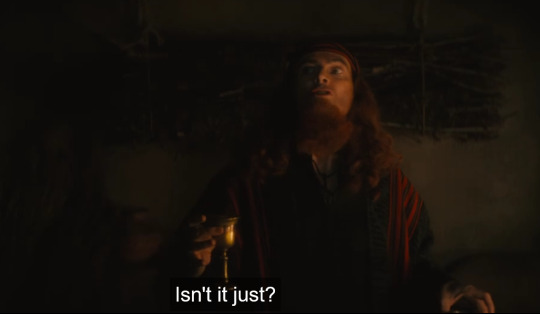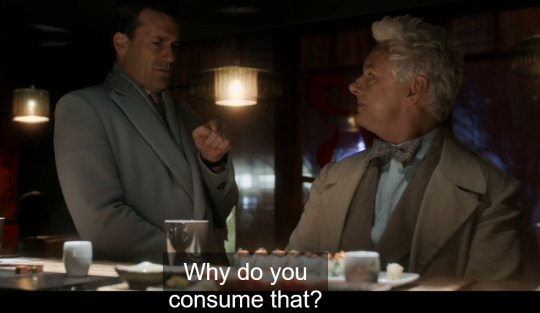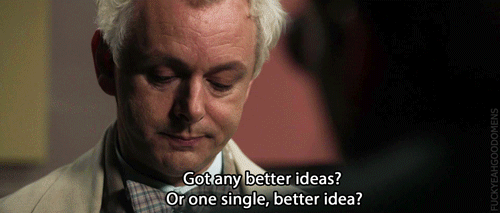#what does judaism mean to them?
Text
hello. jew here
dont write jewish characters if u know next to nothing about us or our culture/religion pls. if u want to write a jewish character (or any character outside the scope of your personal knowledge, honestly), you MUST take the time to read about us and our beliefs, customs, etc. im not saying u have to be an expert on the torah or the tanakh or the talmud, but u need to do at least the bare minimum. and google isnt always reliable, if u have questions u should carefully analyze which websites u use. or have a jew beta your fic/writing!
im just tired of seeing “this character is jewish :) u can tell because they celebrate hanukkah” and that is it for the jewish characterization. like i get that u ppl know nothing abt judaism except for hanukkah but u HAVE to do better than that. because ur essentially tokenizing the character as ur Jewish Representation and it shows.
again, im not saying ‘dont write that hanukkah scene’, or ‘dont try writing jews at all’.
what i AM saying is that u need to actually do ur part in understanding judaism a little bit more before u decide to write a jewish character. if ur not willing to do the research or ask the questions, dont bother writing us into ur stories.
#fanfiction#writing tips#writing reference#fanfic#and there are a lot of factors that go into writing jews!#for instance: where are they from? what kind of jew are they (reform or orthodox etc etc)#what does judaism mean to them?#judaism
3K notes
·
View notes
Text
Idc about the anti semitism accusation hurled at palestinians but like what does it say that anti semitism is mostly brought up in the west when it comes to palestine and ppl say palestinians are "generally antisemitic" ignoring the fact that many of us at a young age internalize that stereotype and do our best than most non Jewish ppl to educate ourselves on "what not to say" meanwhile Canada invited and clapped for a Ukrainian Nazi in its legislature. Like r u sure its palestinians making this world more unsafe for jewish ppl or is it the rise of Christian fascism in the west normalizing nazis for their stupid little proxy war against Russia
#anyway read mohammed el kurds newest article in mondoweiss#bc holding back rhetoric such as jewish supremacy really fails to allow us to articulate something factual that is occurring as a result#of israelis using their religion to justify an innate right to palestine#like the way we talk about it is important to identify what is happening and what needs to go but we dont say it bc some anti semite will#use our words#and regurgitate it to something harmful#but im sorry in 'israel' jewish supremacy exists and it needs to be pointed out for what it is#does that mean the way israelis r colonizing palestinian land and killing palestinians is innately jewish no its not#but its important to discuss why israeli settlers come down from their settlements to spay blue stars of david on palestinian#-buildings and cars etc#its important to point out that soldiers carved the star of david on a palestinians face#why? and then u get to understanding that its not a religious conflict but the israelis do use religion as a semantic weapon-#against palestinians for a reason#it works all the time#also bc many of them really do believe that they have the right to treat palestinians like biblical enemies#its why settlers on camera are caught saying that what theyre doing is racist and immoral but they have a right to it#whats the right? the idea of divine right#but that divine right is not given to them thats a zionist warping of judaism but it has becomes ingrained in jewish institutions everywhere#and that needs to be rectified
18 notes
·
View notes
Text
just a reminder that you absolutely *can* post about palestine genocide WITHOUT triggering content.
there are posts out there about helpful links, charities, lists of companies to boycott, that goddamn "click to donate" website, and those videos of doctors comforting children! updates of traumatized victims doing better! videos of protests worldwide! repost duas for your muslim followers and mutuals who want to pray for palestinians! links on where to buy kuffiyehs!
you say you're living through a historical event? fucking act like it then goddamn!! governments and leaders are failing palestine. we may be regular people who can do almost nothing compared to stopping the deaths of thousands, but the reason nobody does anything major is because the truth is unknown.
you don't need to retweet and reblog explicitly disturbing content if it hurts you! you can just simply promote things on your account like "hey guys starbucks stocks are declining, we should help the boycott by not getting drinks from there! here are some alternatives:"
this isnt a heroic act at all, anybody can do it
#signal boost#anti zionisim#palestine#free palestine#gaza under attack#gaza under genocide#my post#israel is an apartheid state#israel is a terrorist state#also don't be antisemetic because equating the judaism with settler colonialism is bad which i wish i didnt have to say#but alas the masses lack common sense#anyway to get some points across: this is not a religious conflict and has never been but it does impact bigotry against religion worldwide#hatecrimes have been motivated#and also i've heard that having an ethnostate is against judaism itself#oh and always hold israel accountable#another point: palestine literally has no military unlike israel so think about what that means for them#another point: israel has publically. explicitly admitted to having child soldiers in their army so. if you care about the israeli youth#maybe think about those drafted kids who shouldnt even be there
10 notes
·
View notes
Text
i need to post about palestine on facebook but i'm fucking terrified
#i went to a very jewish college and a very decent percentage of my fb 'friends' are jewish zionists.#i don't use fb often but when i've checked recently‚ i've found a handful of pro-israel posts‚ and they've been well-received.#i have seen one person put a palestine frame on their profile picture. they got a small‚ mostly positive but some negative‚ response.#that's all the reference i have here.#and very importantly: i feel like pretty much anything i say is going to be received as goysplaining.#i think my best bet is to stay away from historical arguments (like‚ yes palestine does actually exist‚ yes it was bad to force them off of#their land in the first place‚ etc)#and also avoid my personal feelings on this re: my relationship with judaism (which is integral to the message i want to send but w/e)#and focus on israel's very obvious current indefensible actions.#however. i feel like i'm doing the movement a disservice if i don't call for a free palestine and explain what that actually means.#but doing that would increase my risk of getting dogpiled from 'high' to 'inevitable'.#and i am not articulate!!! people might try to rebut me‚ and i am very bad at debate!!!!!!! i have multiple anxiety disorders!!!!!!#and people get fired over this kind of thing. i know the chance is small‚ but i don't know if i want to risk my career over this.#my gut is telling me to wait until i'm sure. but i don't know if or when that will happen.#i want to change *someone's* mind‚ but idk if i'll even be able to do that. maybe just my uninformed hometown gentile friends'.#i want to do this before it's 'too late'. but what does 'too late' mean here? my fb friends aren't launching the missiles.#i suppose my goal is to help turn the tide of public opinion‚ in the hopes that that'll affect the politicians/corps at play here.#but maybe i'm more likely to do that by marching. making posters. talking to acquaintances. who knows what else.#just because i don't *see* those minds change doesn't mean they're not changing. maybe those minds are actually more likely to change.#txt
7 notes
·
View notes
Text
Contemplating the Hebitian afterlife...
Facts I have to work on:
Hebitians had tombs with grave goods at some point in their history, which were valuable and made of precious materials, enough to have those tombs looted and artifacts sold off to fund the Union's shitty policies (yet another reason I go 'wrow this is very familiar' about Cardassia and Egypt)
Generally cultures with grave goods believe in an afterlife, the goods are meant to go with the soul to whatever hereafter there is
They believe in a cyclical succession of generations and time itself, which can imply reincarnation
In the Nexus and the Calling, Garak sees and speaks with several dead people, which does imply an afterlife (and kinda makes me shake like chihuahua because he saw Julian in the Calling in much the same manner with a very foreboding set of circumstances. Hey @ Oralius what the fuck does that mean)
I'm contemplating because this possibly has broader ramifications for how starkly different Cardassian and Hebitian culture is, as I have established that Cardassians canonically don't believe a separate spiritual and physical realm, and given we know this because of how they act about their dead, it's probably a very old belief from a (waves hand vaguely) time when they had something more closely resembling what a western audience recognizes as a religion, as opposed to the civic religion they have now where the State is sanctified. This doesn't necessarily mean a culture with thos belief thinks there isn't an afterlife, but still. Thinking hard on it.
Given that I've decided to lean into Coptic/Pharaonic inspirations when writing about Hebitians, I might just do something weird with the concept of a multipart soul
#Cipher talk#Cardassians#Hebitians#Ds9#This is why Judaism doesn't think about this too hard /j#I'm leaning more personal because I don't want to step on any other community's toes with them#Given that different Indigenous groups are subject to different stereotypes and specifics#TBC in the Calling and Nexus he also sees and speaks to living people#As does Julian#But what happens is Garak is in a crowded room and sees Julian a distance away and keeps trying to make his way through the crowd to get to#Over to him while calling his name#But he's unable to navigate through the crowd and Julian (as garak sees him) either ignores him or can't hear him#And this happens after months of Garak trying to reach him through the Nexus and presumably other means and being unable
9 notes
·
View notes
Text
I swear Christianity (and islam!! and islam!!!!!! PLEASE LOOK AT ISLAM!!!) has so many themes that can be esxplored in art and literature but they choose the same Noah, Moses, David, and Jesus stroylines (or the good ol modern christians puritan plot of atheist bad christ good) that Im so ready to snap back with catholic blasphemy.
#'oh but you can't draw anything of the prophets in islam!' you ever heard of refrences?? allegories??#the quoran also has a lot of added information from the other prophets of judaism and christianity.#in the same way new indie works are starting to reference agnosticism or the book of enoch others could also reference prophets by#using them as inspirations for characters in other stories.#side rant but Iblis seems more of a cool character to explore than lucifer. mainly because The Devil#in chritianity is vague and also a metaphor for all encompassing evil#whereas Iblis can be seen as Evil but still have more than just a textbook defintion of Evil.#One ource states he asked directly to disway adam from Allah.#other sources state than he does have free will. as any other jinn. to be neutral or good or evil. but mainly chooses to turn people#away from Allah.#He is also more likely to be in hell whereas The Satan from the bible is more just trhown into a lake of fire. his second death.#and God knows what the heck any of the Apocalypse is supposed to mean#so yeah Iblis. and other jinns. I need more media (mainly western media) to focus on these little guys.#omg and yeah#THEY ARENT EVEN FALLEN ANGELS so the whole theology of whenever or not angels can revel is just#thrown into the lake of fire
1 note
·
View note
Note
Hi, this is very ignorant. I'm trying to read as much as I can on Palestine and Zionism but there is one point I cannot find an answer for. Given that Zionism is not Judaism, given that at the beginning most Jewish people did not share this view and was actually supported by christians with antisemitic views, given that it was conceptualized as a colonial project that could only be actualized by ethnically cleanse Palestine, one thing I don't know how to disagree with Zionists is the idea that Jewish people do come from that land. Even if European jews are probably not genetically related to the Jewish people from there, I think Jewishness is something that can be constructed as related to that land. This of course does not mean that Palestinians are not natives too and they have every right to their land. However I don't really know how to answer when Jewish (Zionists) tell me that Jewish people fled that land during the diaspora. Other than "yeah but the people that stayed are native that underwent christianization before, arabization later, grew a sense of nationhood in the 19th century and are Palestinians now"
It's a fundamental misunderstanding of what "indigeneity" is to believe that it means "whoever has the oldest claim to the land." Rather, to describe a people as "indigenous" is a reference to their current relationship to the government and to the land—namely that they have been or are being dispossessed from that land in favour of other private owners (settlers); they have a separate, inferior status to settlers according to the law, explicitly; they are shut out of institutions created by the settler state, explicitly; they are targeted implicitly by the laws of the settler state (e.g. Israeli prohibitions against harvesting wild thyme or using donkeys or horses for transportation); the settler state does not punish violence against them; &c. &c.
It is a settler-colonialist state that creates indigeneity; without one, it is perfectly possible for immigrants to move to and live in a new location without becoming settlers, with the superior cultural and legal status and suppression of a legally inferior population that that entails.
If all that were going on were some Jewish people feeling a personal or religious connexion to this land and wanting to move there, accepting the existing people and culture and living with them, not expelling and killing local populations and creating a settler-colonialist state that privileges them at the expense of extant populations, that would be a completely different situation. But any assertion of the land's fundamental Jewish-ness (really they mean white or European Jewishness—the Jewish Arabs who were already in Palestine never seem to figure in these arguments) is a canard that distracts from the fundamental issue, which is a people's right to resist dispossession, ethnic cleansing, and genocide.
Decolonize Palestine lays out some of the ethnic and cultural history of the region, but follows it up with:
So, what does this all mean for Palestine?
Absolutely nothing.
Although the argument has many ahistorical assumptions and claims, it is not these which form its greatest weakness. The whole argument is a trap. The basic implication of this line of argumentation is as follows:
If the Jewish people were in Palestine before the Arabs, then the land belongs to them. Therefore, the creation of Israel would be justified.
From my experience, whenever this argument is used, the automatic response of Palestinians is to say that their ancestors were there first. These ancestors being the Canaanites. The idea that Palestinians are the descendants of only one particular group in a region with mass migrations and dozens of different empires and peoples is not only ahistorical, but this line of thought indirectly legitimizes the original argument they are fighting against.
This is because it implies that the only reason Israel’s creation is unjustified is because their Palestinian ancestors were there first. It implies that the problem with the argument lies in the details, not that the argument as a whole is absolute nonsense and shouldn’t even be entertained.
The ethnic cleansing, massacres and colonialism needed to establish Israel can never be justified, regardless of who was there first. It’s a moot point. Even if we follow the argument that Palestinians have only been there for 1300 years, does this suddenly legitimize the expulsion of hundreds of thousands? Of course not. There is no possible scenario where it is excusable to ethnically cleanse a people and colonize their lands. Human rights apply to people universally, regardless of whether they have lived in an area for a year or ten thousand years.
If we reject the “we were there first” argument, and not treat it as a legitimizing factor for Israel’s creation, then we can focus on the real history, without any ideological agendas. We could trace how our pasts intersected throughout the centuries. After all, there is indeed Jewish history in Palestine. This history forms a part of the Palestinian past and heritage, just like every other group, kingdom or empire that settled there does. We must stop viewing Palestinian and Jewish histories as competing, mutually exclusive entities, because for most of history they have not been.
These positions can be maintained while simultaneously rejecting Zionism and its colonialism. After all, this ideologically driven impulse to imagine our ancestors as some closed, well defined, unchanging homogenous group having exclusive ownership over lands corresponding to modern day borders has nothing to do with the actual history of the area, and everything to do with modern notions of ethnic nationalism and colonialism.
I would also be careful about mentioning a sense of "nationhood" or "national identity" in this context, as it could seem to imply that people need a "national" identity (a very specific and very new idea) in order not to deserve genocide. Actually the idea that Palestinians lacked a national identity (of the kind that developed in 19th-century Europe) is commonly used to justify Zionism. Again from Decolonize Palestine:
This slogan ["A land without a people for a people without a land"] persists to this day because it was never meant to be literal, but colonial and ideological. This phrase is yet another formulation of the concept of Terra Nullius meaning “nobody’s land”. In one form or the other, this concept played a significant role in legitimizing the erasure of the native population in virtually every settler colony, and laying down the ‘legal’ and ‘moral’ basis for seizing native land. According to this principle, any lands not managed in a ‘modern’ fashion were considered empty by the colonists, and therefore up for grabs. Essentially, yes there are people there but no people that mattered or were worth considering.
There is no doubt that Zionism is a settler colonial movement intent on replacing the natives. As a matter of fact, this was a point of pride for the early Zionists, as they saw the inhabitants of the land as backwards and barbaric, and that a positive aspect of Zionism would be the establishment of a modern nation state there to act as a bulwark against these ‘regressive’ forces in the east [You can read more about this here].
A characteristic feature of early Zionist political discourse is pretending that Palestinians exist only as individuals or sometimes communities, but never as constituting a people or a nation. This was accompanied by the typical arrogance and condescension towards the natives seen in virtually every settler colonial movement.
That the early settlers interacted with the natives while simultaneously claiming the land was empty was not seen as contradictory to them. According to these colonists, even if some scattered, disorganized people did exist, they were not worthy of the land they inhabited. They were unable to transform the land into a modern functioning nation state, extract resources efficiently and contribute to ‘civilization’ through the free market, unlike the settlers. Patrick Wolfe’s scholarship on Australia illustrates this dynamic and how it was exploited to establish the settler colony.
5K notes
·
View notes
Note
So, Moses is a cleric, Solomon is a wizard, Joshua is a paladin, David is a bard, Jesus is a sorcerer, his apostles and Paul are warlocks, Elisha is a druid, Elijah is a monk, Samson is a barbarian, Tahkemonite along with Eleazar and Dodo are fighters, John the Baptist is a ranger, Jacob is a rogue
I'm really cautious about using DnD terms to describe nuanced historical metaphysics like this. DnD's cosmology is a mess. I don't know how it works because the writers don't know how it works. It's very easy for readers to come away with the wrong impression, and tbh it often comes off with this corny-ass "hello fellow kids did you know the Buddha was literally a hecking druid" type energy.
I wanna stress: This is fun to think about, but please don't treat this as meaningful analysis of real-world religions. I wanna demonstrate how quickly these terms break down when you're looking at actual historical metaphysics.
If we wanted to analyze biblical characters with DnD terms, every Charismatic Jewish Holy Man would be classified as a warlock. Moses is not a nebulous intermediary between gods and mortals. The man famously had a covenant. The whole covenant thing is a pretty important part of Judaism. But then again, that brings up problems for what the destruction of the first temple would mean for the classification of Judaism. Does the development of the rabbinical system suddenly turn everyone from warlocks into clerics? Within Judaism, the word of God is the law under-girding the whole of the world, including nature. Does that make every Rabbi a druid?
Jesus certainly wouldn't be a sorcerer, hes just a God. His power isn't hereditary, he is literally God. Calling Christ a sorcerer would be heresy.
Solomon is a wizard. The DnD wizard archetype is quite literally based on the biblical character of Solomon.
Samson is kinda a paladin? I'm not entirely sure what he would be classified as.
The Apostles are tricky, because their classification would probably change as the doctrine developed. Initially they would probably be classified as warlocks who "inherited" the laws and works of the new covenant with God, which is warlock metaphysics. But, several of them were kinda in charge of writing the new laws of the covenant, which I guess would be cleric metaphysics. Several of them also have priestly vows, which is paladin metaphysics.
John the Baptist is the only one on this list who could be considered a DnD Druid. Baptism as a rite probably has non-jewish pre-christian roots. I guess its the closest thing Christian metaphysics has to "nature magic." But my even suggesting that the power of baptism stems from a source other than God would be heresy.
2K notes
·
View notes
Text
Notes on the Scene in Job's Basement

Crowley is not tempting Aziraphale here. He's experimenting on him.
Getting Aziraphale to sin, or even getting him drunk, is not Crowley's intent in this scene. Eating food, taking pleasure in food, drinking alcohol, and even being drunk are not sins in most of Judaism or Christianity (and they're certainly not sins in British Christianity, regardless of any church's doctrine). When Aziraphale turns down alcohol, Crowley just suggests he try food instead; so it's not important to Crowley what Aziraphale tries, but it is important to him that he try something.
This scene is also the first time (chronologically) we see that Crowley likes to drink and likes to be drunk.

We know from

and from


as well as from Book Omens and Word of God that angels have no instinct beyond curiosity pulling them toward eating or toward gender. From this we can reasonably presume they have no instinct toward Beverages either.
That means that in this moment--

--Crowley is very likely the only metaphysical entity he knows on either side of the divide, or even knows of, who has ever experienced a physical pleasure.
And he probably has some Lingering Questions about it, like we all did the first time a physical pleasure blew our minds. Like,
Is it this strong for everyone?
Is there something wrong with me?
Am I going to hurt myself if I do this, like, a lot?
And it's not like the poor creature can ask anyone, because the answers for humans aren't necessarily going to apply to him.
So when he sees an opportunity, Crowley gets that one angel he knows who'll talk to him to try a human thing, and then he watches to see if physical pleasure hits the angel as hard as it hit him.
And that's why he looks so creepily pleased when it does.

Apparently it is this strong for everyone and there isn't anything wrong with him. Now he can relax and get sloshed without worrying, and he even has someone to talk to about how rad human stuff is.
A Dip Into Speculation
We know because we're shown this isn't the first time Crowley has gotten drunk that, watching Aziraphale, Crowley understands what he's seeing. I think it's really interesting that Crowley doesn't laugh at Aziraphale at any point during this scene, and he doesn't correct the way he's eating, either.
Maybe it's because this is what it was like for Crowley the first time. Maybe he got so drunk he passed out and woke up in a puddle of his own sick. Maybe he got so drunk he passed out and didn't wake up at all, and there was Paperwork and he had to get used to a whole new corporation just when he'd got the hang of having legs in the old one. Maybe somebody had to show him how to use a fork or whatever they had going on for eating utensils in Ancient Mesopotamia. I distinctly remember having to learn as a small child to chew with my mouth closed. There is every possibility Crowley doesn't consider the way Aziraphale is eating to be worthy of ridicule because whatever Crowley did the first time was worse.
Maybe he wants to leave Aziraphale set up for later embarrassment over his table manners. Aziraphale was a judgy bitch about the wine.
Or maybe it's something like Let him have this one. There can be rules to it later; let him just enjoy it, once, like a little kid with both fists in their birthday cake.
Maybe it's desire. There is some textual evidence for this. Once Aziraphale learns to eat properly, the way he does it is very attractive, and we know Crowley loves watching him do it.

I don't think it's overreaching even to interpret David Tennant's physical performance of Crowley watching Aziraphale eat as one of sensual or erotic pleasure. I mean--


I'm not saying it absolutely has to be erotic, but it's not a reach, or even a full extension of the elbow, to read it that way.
There's another meta somewhere [I'll link it when I find it again; if you know this meta, please drop it in comments!] that discusses how this exchange in Job's basement is filmed like an erotic scene.

Like Crowley, we all want to kiss this face.
Aziraphale isn't eating prettily, but he's eating lewdly, ravenously, desirously, and it's lit like romantic sex, not like gluttony. Whether that's funny or poignant or hot may depend on the viewer. Here's how Crowley's handling it:

Srs tho, any frame of this scene could have been painted by Artemisia Gentileschi.
Or maybe--and this is my favorite of the available interpretations--maybe this is what it was like for Crowley the first time and he doesn't interfere because he wants Aziraphale to come out of this as someone who's had the same experience Crowley's had so Crowley won't be so totally alone in having had it.
1K notes
·
View notes
Text
One consistent insistence by Antizionists that has repeatedly puzzled and confounded many Jews and Israelis over the last few months since 7/10 is the often-repeated assertion that there are "Jewish Palestinians under attack by Israel in Gaza" in its full formulation, or more concisely, that there are "Palestinian Jews".
At first, most of us waved this off as simply an indicator of complete ignorance of the conflict and history of the region, and assumed that they were referring to A) "Jews who are part of the Palestinian nation-people", who exist in extremely, extremely limited numbers through intermarriage and the like, B) some kind of misconception on pre-1948 Jews who were residents of the British Mandate of Palestine, and before that the Ottoman province, or C) Jewish residents of Gaza who self-identify as Palestinians.
C seemed to be the group that was most understood as correct upon cross-examination of people making these assertions, but, being blunt...
There are no members of Group C.
All Jews were removed from Gaza by Israel in 2006, many by force, and the territory was handed over to the Palestinians entirely. There are approximately 1000-2000 Palestinian Arab Christians in the Gaza Strip, with the remaining 99.8% of the population being Sunni Muslim. The only Jews currently in Gaza are hostages held by Hamas and the IDF soldiers who are deployed there, and none of them identify as Palestinians.
But despite this topic being repeatedly and easily debunked, the claim persists among antizionists. The question is why? Not that there is disinformation in play--this entire conflict has been the subject of concerted disinformation campaigns that can be easily disproven by a glance at Wikipedia without any need for deeper research. The "why" here is "what propagandistic/narrative purpose does this claim serve?"
And the primary reasons we can come up with are less than great.
First, claiming that there are "Palestinian Jews" in Gaza allows for the invention of a perfect ideological victim being persecuted by the "racist, White Supremacist, fascist" state of Israel--i.e. they undermine the Israeli claim that the state exists for the protection of Jews.
Second, related to the first, they allow for the Antizionist promoting the theory to avoid facing the antisemitism endemic in the Antizionist movement--by positioning themselves as acting in defense of or advocacy for a (fictitious) Jewish Palestinian, then they can't be antisemitic, just "antizionist".
Third, by claiming that there are Palestinian Jews, it means that Jews are welcome and free to practice their religion in Palestine (and ties into the belief that Judaism is "just a religion"), meaning that "Zionists" are overly paranoid White Supremacists moaning about "the Great Replacement" and "White Genocide" like all other White Supremacists out there, and their concerns about Jewish survival in a hypothetical post-Israel Palestinian state under the governance of Hamas or the PFLP are unfounded and thus there is no need for Israel.
Fourth, and most disturbingly, if there are Jewish Palestinians in Gaza under Hamas' governance, then that proves, to the antizionist, that Hamas truly are freedom fighters working to expand and free their idealized multi-racial, multi-religious democratic Palestinian State from the White Supremacist Racist Zionists who are oppressing everyone, including Jews. (Instead of, you know, terrorists who oppress Gazans and want to kill all Jews everywhere).
In essence, it's a Big Lie. It seems absurd, outrageous even, to just... make up an entire demographic of people for political/ideological purposes, but the fact is, there are concrete and understandable reasons for why people both make it up in the first place, and spread it afterwards...
And those reasons boil down to, "Because we want to believe it, and it fits with the way we want the world to work."
693 notes
·
View notes
Text
Some antisemitic dog whistles to watch out for
Because overtly hostile antisemitism is difficult to sell to people, and because it often gets people banned from media platforms, conspiracy theorists rely on other terms to get their ideas across.
Note that people will sometimes use these terms without understanding their connections to far right conspiracy theories, and some of them have legitimate uses outside of far right conspiracy theories. Don't assume that everyone who uses them is a secret Nazi or something. However, do pay close attention to what else they're saying and who they're getting their info from.
Banker/International banker: references the conspiracy theory that Jews control the banks.
Cabal/Kabbalists: references the belief that the Jewish conspirators are into Kabbalah (which is sometimes claimed to be satanic).
Globalists: references the conspiracy theory that Jews are working to create a one world order.
Talmudists: Literally just means Jews.
Marxists/Cultural Marxists: references the conspiracy theory that Jews created communism.
Leftists: references the conspiracy theory that progressive/leftist politics are a Jewish conspiracy.
The elite/elite bloodlines: references the conspiracy theory that most wealthy/ruling families have Jewish blood.
Khazars/Khazarian mafia: references a debunked hypothesis-turned-conspiracy theory that Ashkenazi Jews are descended from a group of Khazars who converted to Judaism. (Conspiracy theorists often claim that this means Ashkenazi Jews aren't "real" Jews - which is nonsense from every angle because Judaism does not measure Jewishness through genetics.)
Generational Satanists: references the 13 Illuminati bloodlines conspiracy theory, which is basically a knockoff of the material in The Protocols of the Learned Elders of Zion combined with blood libel and the anti-Catholic conspiracy theories of Alexander Hislop. Conspiracy theorists often claim that it isn't about Jews, it's about powerful families who sometimes just happen to be Jews, but like... c'mon, it's an obvious Protocols/blood libel knockoff that also happens to demonize a few more people. You're not slick.
Lizard people: references David Icke's assertion that the world is under the control of blood-drinking reptilian aliens who created Judaism to enslave humanity. Some people literally believe in Icke's lizard aliens; some just use the term as a dog whistle for regular Jews.
1K notes
·
View notes
Text
So there's this post going around about how the OP was almost recruited by some Nazis at a Pro-Palestine protest, and they were so shocked that there were Nazis there marching with them. I don't want to bash the OP (that's why I'm not linking or responding on that post) because I really do think they mean well. Still I can't help but think, "Where have you been?", I've been seeing Nazi shit from these protest for a while now. Does no one remember the protest in Australia back in October, where a bunch of people starting chanting "Gas the Jews!"? Nevermind how any discussions on Judaism or Jewish people inevitably ends with a lot of people spamming the tags or comments with "Free Palestine" even if the discussions had nothing to do with Israel or Palestine.
I'm not even Jewish and I've been seeing Nazis co-opting the movement for years, and I've been seeing Jewish people calling them out on it for years.
Also what do y'all think white supremacists and Nazis look like? Do you think they're all wearing SS uniforms or have swastikas tattooed on their foreheads? Or do you imagine that they're all white trash trailer park losers? Did we all forget Richard Spencer? You can't believe that you can spot these people by looks alone, you have to know the dogwhistles they use otherwise you wind up parroting back their rhetoric without a second thought.
The movement deserves better than to have Nazis take over the discussions, but until other protestors shut that shit down I don't see it changing anytime soon.
#antisemitism#i/p confict#the tags on that post were so surprised too#honestly where have you people been for the last decade?#tw nazis#I've been thinking about this alot over the last month or so
847 notes
·
View notes
Text
i really don't wanna hear shit about "palestinians oppress the christians living there" because not only is your islamophobia inherently irrational but y'all act as if the israeli zionist settlers treat the christians better. here's a video of a settler spitting on and harassing a christian clergyman, since y'all wanna act like israel actually gives a fuck about people practicing their religion openly and safely.
instagram
don't take this opportunity to be antisemitic in my notes either. just because the settler is jewish does not mean all jewish people act like this, so if you're here to be antisemitic, you can fuck right off my blog.
i'm posting about this because i want to show people what zionism does to you. believing and supporting an ethnostate where anyone different than you is treated "less than" is horrific. zionism makes white settlers believe they are better and higher than those who are unlike them. zionism is a disease that only brings hatred into people's hearts.
palestine is the birthplace of both christianity and judaism. christians have every right to be on that land as much as jews and muslims do, since it is the birthplace of jesus. palestinian christians are constantly erased from palestinian representation because israel constantly churns out propaganda about palestinians, implying that we are all muslims, and therefore inherently oppressive to anyone unlike us, when it most definitely is the opposite. zionism is an inherently oppressive ideology that thrives on apartheid, oppression, and genocide. zionism abuses the beautiful religion of judaism and uses it as an excuse to commit crimes against humanity. is that not antisemitic in itself? to twist judaism and jewish culture to create excuses in order to act more superior than those who are not like you? it's all horrible. zionism is an awful and horrific disease.
425 notes
·
View notes
Text
buying the pearl.
"buying the pearl of great price" is a biblical parable from matthew 13:45-46 that neville goddard has frequently used to show how you need to make a complete commitment to your desired outcome or state of being. the parable talks about a merchant who finds a valuable pearl and sells everything he has in order to buy it. neville used this as a metaphor to illustrate how you need to let go of ALL former beliefs if you want to be able to entirely fulfill yourself with your desires.
let go of former beliefs.
you have to let go of any belief system that holds the power to control you. you have to "sell" your old beliefs or declare them and valueless and identify with the only belief — you being god. you have to get rid of everything that does not serve you or dictates your life before you can do it.
there is no outer force but the law.
here‘s the thing: you either believe in the law and that there is no power outside of it or leave it. keep in mind that the law doesn’t cooperate with other belief systems. it’s because believing in the law implies that you understand that everything is you pushed out. everything, every religion, every spiritual pathway is a product of your imagination, a creation from within.
beliefs/ideologies such as astrology, tarot readings, crystals, hinduism, buddhism, karma, numerology, christianity, witchcraft, the law of attraction, islam, judaism, and so on are all the physical embodiment of your imaginative work — if you fully "commit" to the law of assumption. they will always conform to your assumptions about them and only ever be what you make them.
you are the only operant power.
you are the only operant power. there is no spiritual power that can exist outside of you. everything exists because you do, because you are. and it’s your job to identify with your infinite abilities!
that’s why it all loses meaning once you accept that you create everything. suddenly, things aren’t predetermined and you don’t actually witness things the way you do because you are a libra but because of the assumptions you persist in.
you are still free to practice any other belief. i mean, if witchcraft seems fun to you, you can technically use it to your advantage, right? i don’t want to condemn people for practicing other beliefs because you can adjust any belief to your liking and — if it fulfills you — why not?
with love, ella.
#law of assumption#neville goddard#loassumption#manifestation#manifesting#loa#the law of assumption#manifest#spiritual#spirituality#shiftinconsciousness#shiftblr#reality shift#shifter#shifters#shifting realities#reality shifting#imagination creates reality#void success story#void state success story#void state#i am state#loa tumblr#loablr#loa blog#manifest your life#master manifestor#manifest your dreams#manifest it#loa affirmations
2K notes
·
View notes
Text
So I've spent a lot of time untangling Christian exegesis of parables and talking about how the way Christians interpret parables almost always ends up being antisemitic.
But aside from how it makes them think about Jews and Judaism and Jewishness, I also want to talk a bit about how it makes them sympathize more with abusers than with victims.
The easy-to-point-to culprit here is the trilogy of parables that culminates in what most Christians know as the Prodigal Son story.
The common interpretation of these parables is that God does (and therefore Christians should) value a repentant sinner over someone who's never sinned.
The problem here isn't the stories themselves--they're pretty enigmatic as far as their actual meanings--but Luke's gloss:
"Just so, I tell you, there will be more joy in heaven over one sinner who repents than over ninety-nine righteous persons who need no repentance."
(Mark says, "So it is not the will of your Father in heaven that one of these little ones should be lost," which is very different.
So on its face, in 2023, that's a blatantly dangerous, abuser-supporting belief. What is it like to be a child sexually abused by your youth pastor and to hear that the fact that he hurt you is part of what makes him somehow spiritually "better" than you?
And we can see it play out in the way Kevin M. Young, a popular progressive pastor on Twitter (who describes himself as "post-evangelical" and was the senior pastor at a Quaker congregation) responded to being told one of his tweets was antisemitic, and then jumped in to support a woman who responded by identifying herself as a fan of John Chrysostom (the literal author of "Against the Jews" and the most antisemitic of the Church Fathers, which is saying something).

I'm not going to transcribe the whole thing, because it's not all that important for what I have to say about this, but I am going to call out a few lines:
"The American Christian approach to t'shuvah sees the victim's spirit, character, and speech as equally important to the offenders. I.e. in Christendom, the victim can exceed the sin of the offender simply by their reaction (if it be in sin or acted in a way that is not Spirit led)."
So, to be clear, if someone assaults you, and you don't meekly forgive them in a "Spirit led" way, you're somehow worse than they are.
The uniquely Christian brain rot here is in seeing every sin as an opportunity for forgiveness. After all, if being a repentant sinner gives you a higher spiritual status--if there's more "rejoicing in Heaven" over you--than that of your victim, then you have to sin to get there. It treats other people as props in your salvation journey, not as fellow humans whose suffering matters. (Combine that with the Christian idea that suffering is somehow virtuous in and of itself, and you've got a very toxic recipe. Not only, by abusing others, are you guaranteeing your own value as a repentant sinner, but you're giving your victim the opportunity to ennoble themselves through suffering.)
Of course, a key word here is repentant. Put a pin in that.
These sort of exchanges on Twitter--a Christian being outright genocidal toward Jews, and a supposedly progressive Christian figure jumping in to defend the Christian, with seemingly no ability to comprehend that the Jews in the conversation are human beings who may have their own trauma around violently antisemitic language, with boundless empathy for the Christian abuser and none for the Jewish targets of their abuse--happen frequently and just as frequently leave Jwitter baffled in addition to angry.
Why all this empathy for the abuser and none for the victims?
I think a lot of this comes out of progressive Christian exegesis of parables, which is frequently looking for the radical "twist" to the story.
E.g. in the story of the Pharisee and the Tax Collector, the assumption is that the audience of the time would have empathized with the Pharisee, and thus the twist is to make them empathize with the tax collector. In the story of the Good Samaritan, the assumption is that they would have seen the Samaritan as a threat, and the twist is to make him the hero.
The thinking goes that the audience would have had empathy for certain groups and none for others, so the stories push them to feel that empathy for the latter, and that this was needed to balance the scales, to make sure everyone was receiving love and empathy and care.
Except that this, in modernity, has the effect of simply reversing the roles, not balancing them. The groups that are assumed to be in good social standing get no empathy, even become the implicit villains, and the groups (supposedly, since this is now a Christian-dominant society) traditionally looked down on get all of it.
That might still be a balancing act if the "looked down on" groups were actually marginalized. But in the Christian imagination, that role is filled by sinners in need of Christian grace, not necessarily demographically marginalized groups.
The idea seems to be that the victims are getting sympathy from elsewhere, so it's the Christian's job to make sure the abuser/sinner gets sympathy too.
But I'll point again to that pesky word "repentant."
Ultimately, when it comes to treatment of Jews and Muslims and anyone else who points out that a Christian has in some way harmed them, Christian sympathy goes immediately to the offender before the offender has even expressed any repentance.
The repentant sinner is so much more valuable, at this point, than their victims that they must be preemptively forgiven, that they are more valuable purely because they now have the potential to repent.
And this seems to be lurking under not just how "progressive" pastors act on Twitter, but in a lot of our cultural narratives around, say, college rapists and their futures, around white people who are publicly called out for racist acts, etc.
730 notes
·
View notes
Text
This article about Hamas's strategic planning in the lead up to the October assault was at least a partial mind-changer for me. So far I had been viewing Hamas as executing a "bait" attack on Israel for international & domestic political reasons. Kill enough Israelis, and in particular take some hostages, to force Israel to invade Gaza; which you want because that will re-inflame radicalism, tank Israel's growing coziness with Arab states like the Gulf Monarchies, and keep the Palestine Question front-and-center on people's agendas.
What it was not about was achieving any sense of a military victory; Hamas did not think they would be able to defeat the IDF on the field, or even truly hold them back. They thought they would do better than they have in defending Gaza, to be honest, but the goal wasn't to "win" in that way or anything. The actions of Israel, in their inflamed bloodlust, would be the fulcrum of progress for Hamas. It was the most logical interpretation of their strategy, because tbh its working, Israel's strategy void has bungled this war at every level. Of course if it is "worth it" is a completely separate question - Hamas is playing a game from deep, deep in the red, if you aren't going to fold and pack it up from that position these are the hail mary plays you make.
This article, a long (and sometimes overly windy) interview with two career members of the Palestinian governing orgs (primarily Fatah), shines a very different light on that. They outline that over the past ~decade, Hamas leader Yahya Sinwar coalesced power around his own faction of highly fundamentalist adherents that convinced itself that divine favor was shining on them and they would be able to actually defeat Israel in the field. The most compelling evidence for this is a conference they held planning the post-conquest occupation of Israel:
So detailed were the plans that participants in the conference began to draw up list of all the properties in Israel and appointed representatives to deal with the assets that would be seized by Hamas. "We have a registry of the numbers of Israeli apartments and institutions, educational institutions and schools, gas stations, power stations and sewage systems, and we have no choice but to get ready to manage them," Obeid told the conference.
They even called people up to ask if they would take the job of governor of this-of-that province! This was not a bored-Friday white paper by any means. They discussed defensive plans and counter-offensives like that was on the table. Sinwar outlined conquest as the goal.
If we accept this premise, it naturally lends itself to the question "okay how did they get the rest of Hamas to go along with this?" Because Hamas is not all These Kinds of People, its a governing state that does politics on the international stage after all. One of the reasons I leaned towards my interpretation was that, for the past ~decade, Hamas has actually been doing a glam-up rebranding of the org to make it more moderate & respectable in international eyes. The 2017 Charter Revision is the biggest example, which included say disavowing the idea that this was a religious war (distinguishing between zionism & judaism), and loosely admitting to the idea that they could recognize Israel as a country if terms were met. Actions like these show actors who are pretty level-headed. Were they inauthentic? Did they change their mind?
Maybe a bit, but its more than they aren't the same people. Right alongside the build-up to the October attack was a purging & sidelining of whole swaths of Hamas leadership. Many were not even informed of the attack - though they knew something was coming. Apparently it leaked on October 2nd, and a bunch of leaders just immediately fled the Strip for safety. This one is the most amusing:
Haniyeh's eldest son took a similar course of action. Around midday on October 2, Abed Haniyeh chaired a meeting of the Palestinian sports committee, which is headed by the minister of sports, Jibril Rajoub. Suddenly he received a phone call, left the room for a few minutes and then returned, pale and confused. He immediately informed the committee – whose members were in a Zoom conference with counterparts in the West Bank – that he had to leave for the Rafah crossing straightaway, as he had just learned that his wife had to undergo fertility treatment in the United Arab Emirates. (He was lying.) He granted full power of attorney to his deputy and left the Gaza Strip hurriedly.
That is one way to duck out of a pointless meeting, take notes people!
So instead of my hail mary politics play, what you have is a story of an institutional coup by a radical faction - which for extremist resistance groups is an ever-present threat. None of this means the "bait" strategy part is wrong of course, that was definitely still the point - but this argument here claims that goal of the bait was to bring the IDF into Gaza where it could be defeated in the field with their extensive fortifications, and then presumably inspire others like Hezbollah to jump on the moment of weakness and besiege Israel proper.
So....is this true? There are two gigantic caveats on this article: the first is that the people being interviewed do not primarily work for Hamas - they are members of Fatah, the leading faction of the PLO. They hate Hamas, they are not Hamas leaders themselves, they have every incentive to paint Hamas as irredeemable. You really can't take this story simply at their word. But they aren't outsiders - they hate Hamas but they work with them constantly, that is how it works, people rotate around in the Palestine orgs. They have met personally and worked with dozens of Hamas leaders; one of them was even called to be offered one of those post-war occupation governorships! (He said no lol) So its a big red flag but not a damning one. And things like the fleeing leaders, the conference on the occupation, those all 100% happened. They released press on it, they weren't hiding it.
The second caveat is that its just really not uncommon for large organizations, particularly extremist ones, to engage in mainly performative actions at scale. The South Korean government still maintains a department that plans for the administration of North Korea for example! Not totally useless ofc, but it writes exactly the reports you think it does that get put in a bin and never touched. Sometimes its appeasing internal factions, sometimes its PR, sometimes its just institutional inertia. Its absolutely believable that Hamas would make a big plan for how they would conquer Israel because otherwise...what do you tell the commanders, exactly? Why are they fighting again? A significant percentage of the lower-level fighters need that belief, so you give it to them. While certainly there is a fundamentalist faction in Hamas, are they ones winning? Or are they just another faction being played against?
I don't see enough evidence to say, but there is enough to make me pause. I'm not sold on it in the end, that is my final conclusion. I think more brains than Sinwar were involved in this and they had more realistic aspirations. And yet the level of commitment and disorganization does suggest that at least some of what was pushing events forward was a group immune to doubts being at the wheel. Certainly interested in researching more.
264 notes
·
View notes